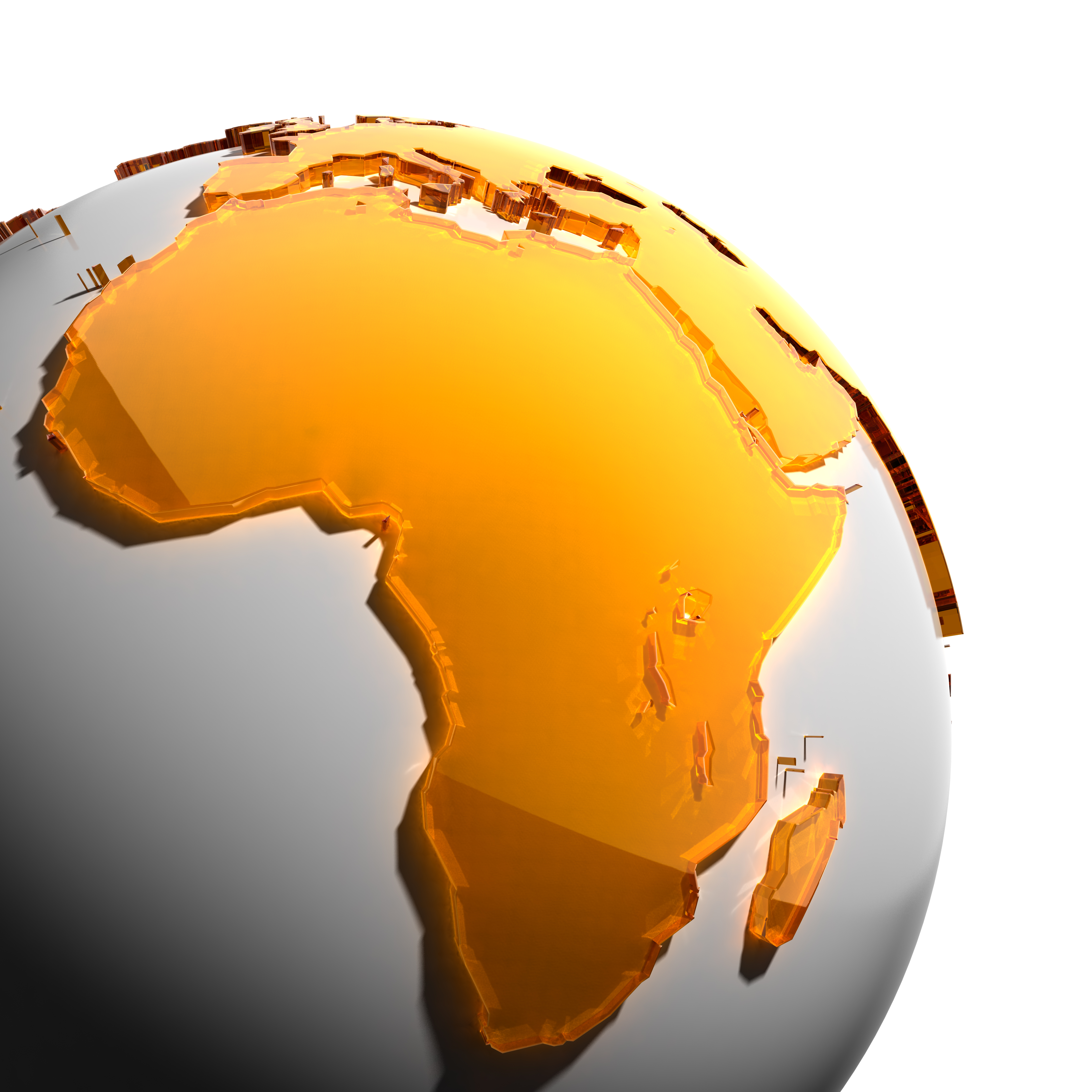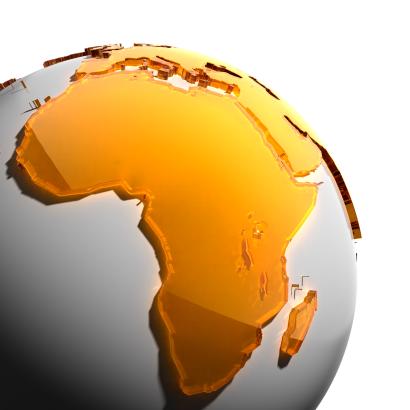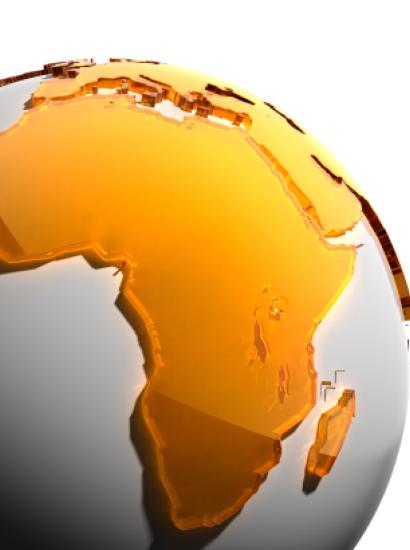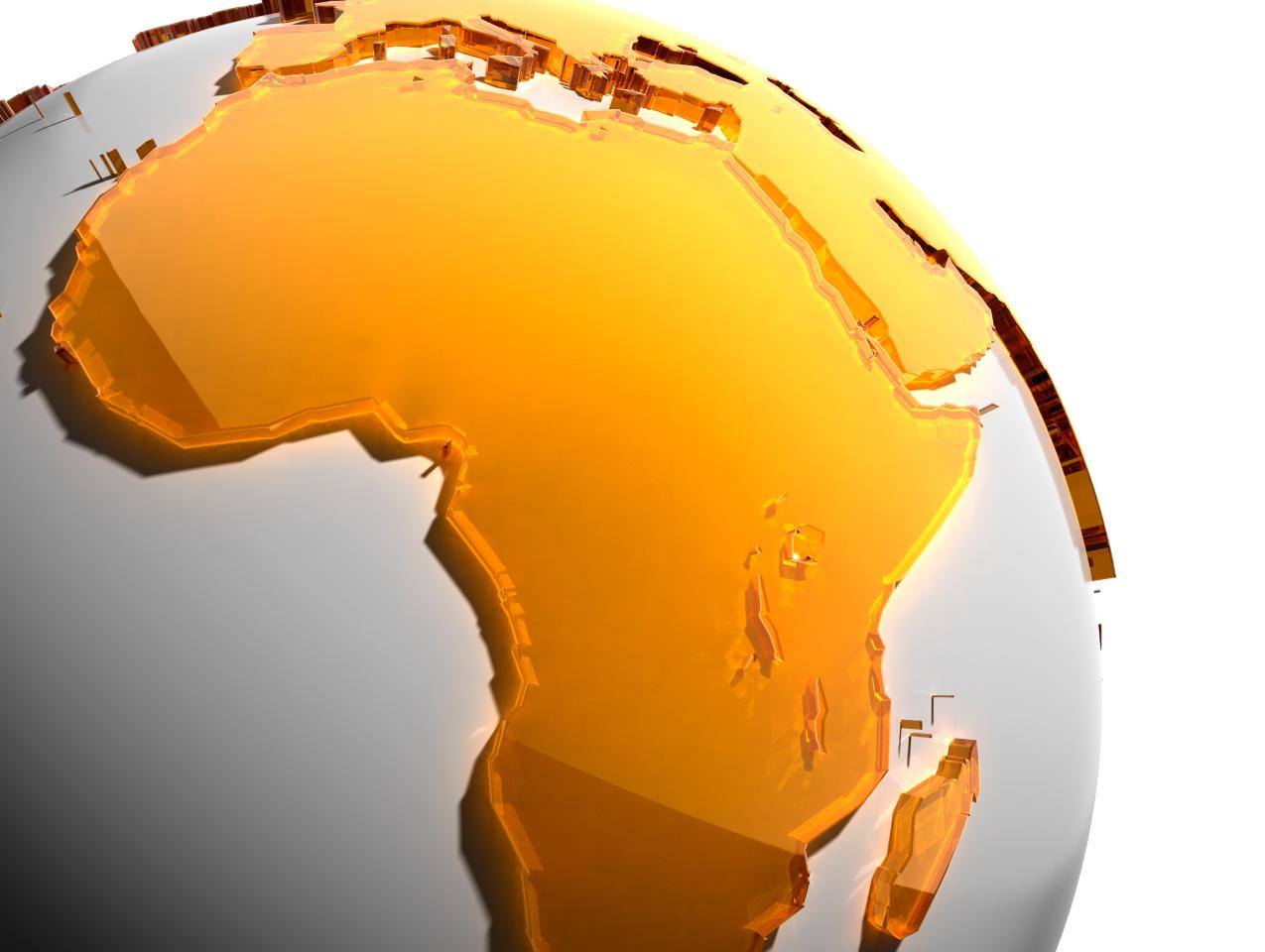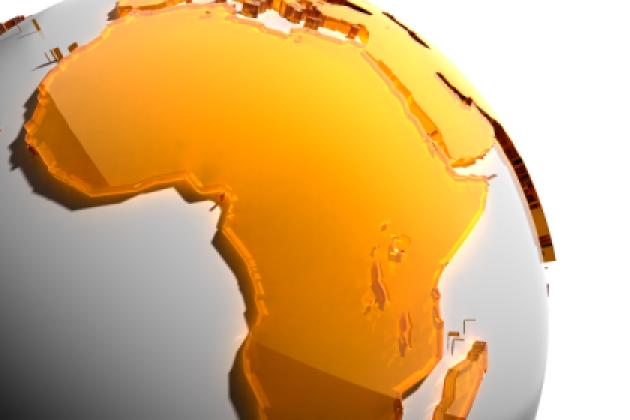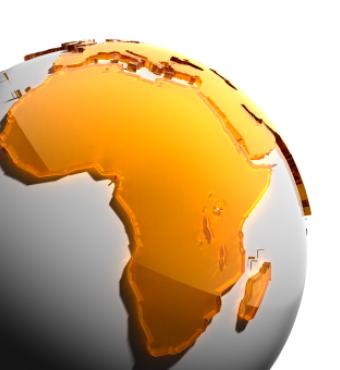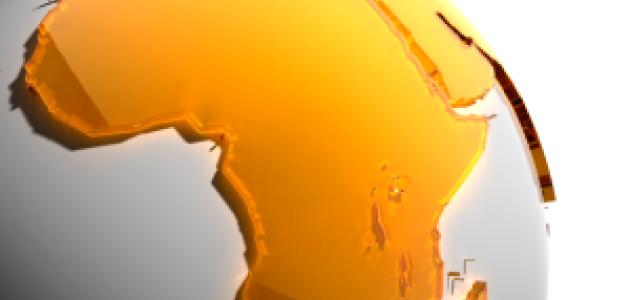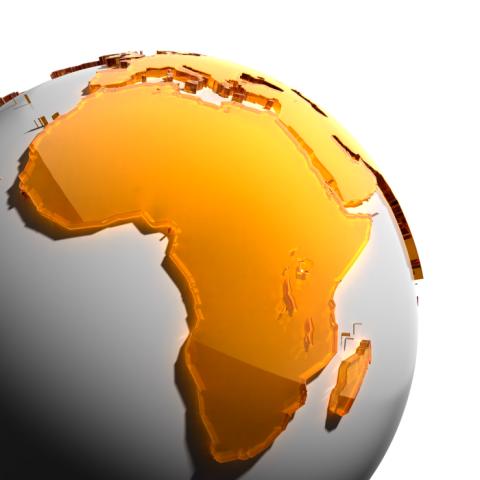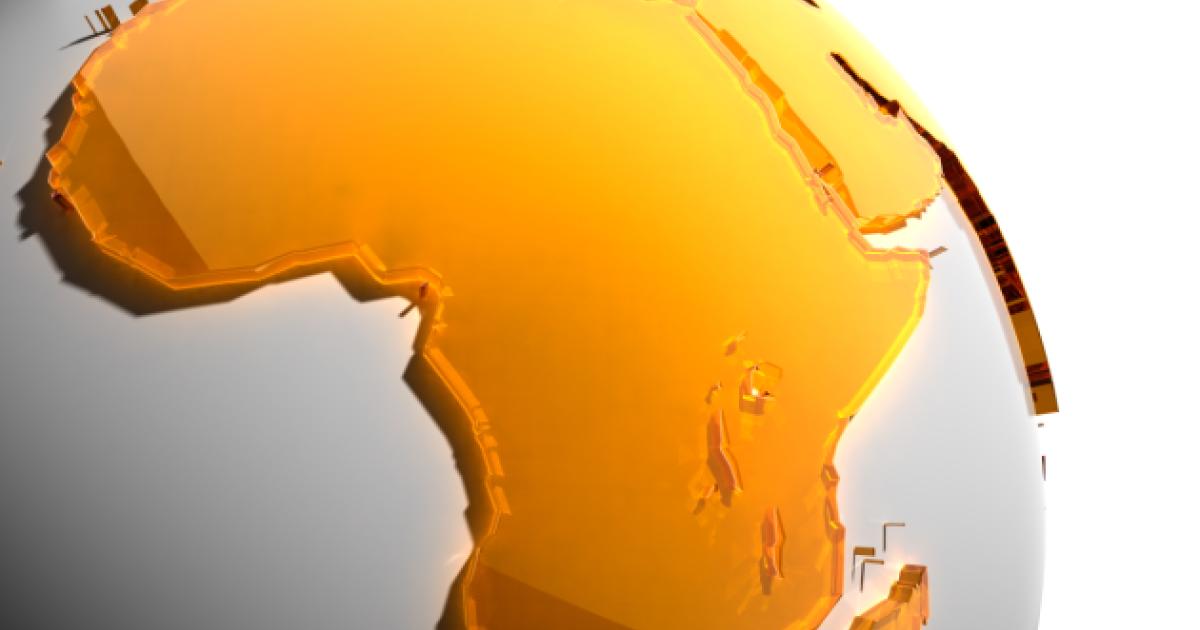- Africa
A second scramble for Africa is under way among the great powers. Unlike in the first scramble, foreign powers now seek access to Africa’s abundant mineral wealth without any of the pretense, displayed by Europeans a century ago, of a civilizing mission. Russia and China are leading this current resource grab. Both are content to exercise influence through weak autocratic and dependent indigenous regimes, which welcome Russian mercenaries and Chinese state economic enterprises to bolster their rule.
The first scramble for the African continent escalated in the waning years of the nineteenth century and lasted until the outbreak of World War I in 1914. This partition of nearly 90 percent of the world’s second-largest continent by area and population witnessed its conquest, annexation, and colonialization by seven European nations. Great Britain, France, Belgium, Portugal, and other West European countries dispatched soldiers, missionaries, officials, and even settlers to take over land and grow sought-after crops like cotton and coffee. Today’s “scramblers” have much less interest in planting their national flags in colonies than did their nineteenth-century predecessors, who strove to color the map with British red or French blue.
After World War II, Africa’s political class ousted the foreign occupations. By the late 1960s, much of Africa was nearly free of direct European control. A number of former colonies emerged as democracies, but others continue to live under despotic and kleptomaniac rulers, who need outside bolstering to hang on to the spoils of office. Little wonder that undemocratic and unscrupulous African presidents turn to the dictatorial regimes in Russia and China for model and direction, as well as for military and financial help to prop up their rule.
Violence for Hire
Moscow and Beijing exploit Africa’s vulnerability for their own ends. Neither the Kremlin nor the Chinese leaders gravitate to honest democratic countries. They prefer under-siege despots who are despised by their citizenry or threatened by Islamist extremists. Western leaders, on the other hand, tend to eschew non-democracies. France, for example, withdrew its five thousand troops from Mali after the nation underwent a coup in 2022. The French presence had kept Islamist terrorist at bay since 2013. Mali now relies on Russian mercenaries to combat Islamist insurgents.
Russian commercial trade with Africa is minuscule compared with that of the United States or China. As for armaments, China is now the chief exporter of arms to Sub-Saharan Africa, having elbowed aside Russia, whose exports have suffered under the international sanctions imposed after Russia’s invasion of Ukraine. The United States is a distant third in Africa, though still the largest arms exporter globally.
Africa serves to ease the Kremlin’s diplomatic isolation imposed by the United States. For instance, Sergey Lavrov, the Russian foreign minister, visited Africa twice in ten days in early 2023. Diplomacy aside, Russia’s quest for natural resources and pursuit of questionable business transactions are furthered most directly by its use of quasi-military forces. Take Russia’s Wagner Group, the same band of mercenaries who inflict destruction and death on Ukrainian soldiers and civilians. Formed in 2014 and led by Yevgeny Prigozhin, a confidant of Vladimir Putin, the Wagner mercenaries have contracts with several African leaders to fight their enemies and train the regimes’ armed forces against opponents and Islamist infiltrators. Since 2018, the paramilitary group has signed military assistance and security deals with Mali, the Central African Republic, and an armed faction in the Libyan civil war.
In the Central African Republic, Wagner mercenaries train the national army while taking over territories rich in diamond deposits. They export the diamonds through local strongmen in neighboring Sudan and onto Dubai, a mineral trading hub. Next door, in the Republic of Chad, Wagner operatives have been accused by US intelligence of aiding Chadian rebels in their efforts to destabilize the government.
Wagner’s mercenaries are a formidable and noxious presence on a continent lacking modern and democratically oriented militaries that abstain from politics. Wagner’s armed footprint is nearly the size of America’s six thousand troops and advisers on the continent. The US Treasury Department has designated the Wagner Group as a transnational criminal organization for its warfighting activities in Ukraine. And in Africa, citing reports from human rights groups and local authorities, Treasury officials have charged Wagner personnel with mass killings, torture, and rape.
China Plays the Trade Card
China presents an entirely different threat to the West. Its initial strategy in various forms dates back to the early 1960s, when Beijing aligned with African national liberation movements fighting European colonialism. The anti-colonial struggles taxed Britain, France, and Portugal while opening doors for Marxist impact on the continent. China’s gains, however, were short-lived. China’s initial African intervention collapsed when Mao Zedong’s Cultural Revolution (1966–76) convulsed his country.
When China returned to the African scene, it pursued commercial engagement. In 2013, a year after Xi Jinping became paramount leader, China launched its enormous and costly Belt and Road Initiative (BRI). The BRI embarked on a trillion-dollar infrastructure building spree around the world, focusing on seventy developing nations in dire need of railways, dams, airports, highways, tunnels, and pipelines. These construction efforts deepened commercial relations and financial obligations between China and almost every state in Africa, with special ties to Angola, Ethiopia, and Zambia.
China’s aggressive posture in the South China Sea is matched by these assertive business activities in Africa. Africa figures prominently in Beijing’s global commercial enterprises. In fact, China is Africa’s largest two-way trading partner, reaching $254 billion in trade in 2021, a number four times as high as US-African trade.
By themselves, China’s building and investment are not worrisome to Washington so long as commercial projects do not restrict Western access to strategic minerals and sources of bauxite, oil, and copper. Of greater concern is China’s pursuit of a military base in oil-rich Equatorial Guinea, on the west African coast, similar to the one China built in Djibouti, on the Horn of Arica. And China’s championing of dictatorial regimes constitutes a direct ideological confrontation with Washington and its democratic allies.
In some countries, the goals of the two authoritarian powers collide. For instance, Russian and Chinese tensions have flared over their dueling claims over gold mines in the Central African Republic, a country plagued by internal conflict since 2013. In March, for instance, nine Chinese nationals were killed at a mine overseen by Chinese companies. The Russians, particularly the Wagner Group, come in for blame for training and arming the pro-Russian government, which struggles against local rebel factions bent on ousting the nation’s president. Despite words of global unity, Russia and China do have their own agendas in Africa.
A Historic Threat Revived
Aside from great-power competition, the United States and the West face another perilous challenge in Africa. This threat re-emerged from Islamist extremists who had been active in the continent for centuries, going back to their seventh-century origins in what is today Saudi Arabia. Such forces have conquered, controlled, and proselytized both to spread their faith and to resist Western encroachments. Militants from both the Islamic State (ISIS) and Al-Qaeda, after having sustained defeats in the Middle East, now focus on the Sahel region below the Sahara Desert. This strip encompasses parts of Burkina Faso, Chad, Mali, Mauritania, and Mali; all those nations have felt the threat of radical Islam once again.
The 9/11 terrorist attacks in the United States contributed to the resurgence of militant Islam in Arabia, Asia, and Africa. To combat militant movements in Somalia, Mali, Niger, and other nations, the Pentagon deploys highly trained special operations forces, along with State Department officials, and nongovernmental organization to fight Islamist insurgents and help local governments win over their people to democracy, development, and human rights. US efforts include implementing population-centric civic measures (medical and veterinary clinics, wells, and crop cultivation) as well as protecting Africans from gunmen and other violence.
The bush warfare is intrinsically political. The shadow warfare carried out by Islamist insurgents—blending in with the population after shootings, bombings, and raids—is hard to defeat. No quick victories are likely, only continual patrols and other security measures. Yet a military response alone is not enough to support democracy and human rights. US personnel are also helping African leaders master the skills and attitudes to entrench honest, accountable administrations in desperately poor lands.
These are “forever wars,” without a doubt. Nevertheless, they must be fought, or terrorism will return to US shores. The costs are low compared to those of wars in Iraq, Afghanistan, and Ukraine. American casualties are rare and the yearly expenses take up roughly 0.3 percent of the Defense Department’s personnel and budgetary resources.
Many African leaders resent being treated as pawns by competing superpowers. They are simultaneously receptive to Chinese aid and investment and to American trade and assistance, and they want to avoid choosing one side over the other. Washington is aware of the need to favor cooperation over confrontation, even as tensions with China and Russia demand more effort, resources, and diplomatic ingenuity to forestall another scramble for Africa.







